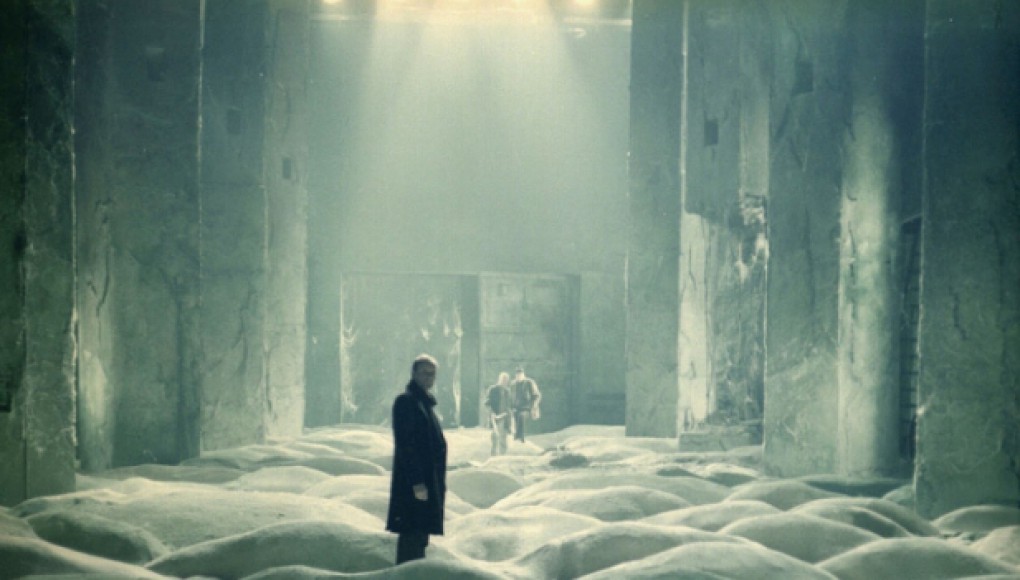Review written by Raul De Leon
Blade Runner (2049)
Thirty-five years later, we get the unexpected sequel to the sci-fi classic Blade Runner (1982). Most fans of the original, like myself, were probably content without a series of films following the original, especially considering the direction Hollywood has taken this century, where every film has got a reboot, sequel, or spinoff that is more than often underwhelming. But with producer Ridley Scott, A-list director Dennis Villeneuve, thirteen time Oscar nominated cinematographer Roger Deakins, and respectable lead Ryan Gosling, who never chooses his roles for the money, this sequel gave us sci-fi and film aficionado’s an authentic hope for a beautiful continuation of the Android dream.
Since the first film was based off of existing material; Phillip K. Dick’s novel, Do Androids Dream of Electric Sheep?, screenwriters Fancher and Green would have to come up with a fresh narrative for the sequel. This time around, the film is set thirty years into the future and back in semi-dystopian cyber-punk Los Angeles. K (Ryan Gosling) is the new Blade Runner hunting down his own kind. His main mission is to find the child who was miraculously born from an android. As K searches for the android child, he struggles with his personal nature and existence, and the film blurs the lines of reality and artificiality.
It pleases me to say that 2049 expands the exploration of the original’s themes. There would be no other way to do Blade Runner justice and satisfy its fans. 2049 introduces novel ideas to continue challenging its viewers intellectually and emotionally on what it means to be human. Thanks to a fine vision and impeccable execution from the filmmakers, the soul-arousing script is fully brought to life.
2049 shines in every aspect of filmmaking. Master composer Hans Zimmer (The Lion King, Inception) and new Hollywood talent Banjamin Wallfisch (It, Dunkirk) design a reverberating score that is inspired by Vangelis’ genius original. It’s an eerie sci-fi sound that blares through your eardrums. The slick futuristic neon city-scape is its visual counterpart. Predictably Villeneuve and Deakins make every frame of 2049 gorgeous. LA’s barren outskirts is swamped with a ravishing permanent orange tinge that suggests post-apocalypse. My eyes were floored at the sight of the Tyrell corporation headquarters where glowing water reflections oscillated on the walls behind the deep-blue eyed android dean, Niander Wallace.
With Blade Runner, visuals are consistently compatible with significance and substance. K owns a popular household-HAL type computer that projects a holographic girlfriend. There is an impressive visual effects scene where the hologram woman attempts to sync with an android that K spends the night with. A massive Atari sign that K flies his ship through is one of the stand out super-giant advertisements that are an actual part of the city’s infrastructure. Another striking effect to stimulate your head-gears is the image of the creation and editing of memory implants. All of these visual innovations add layers to the philosophy of the series.
In 1982, Blade Runner bombed at the box office because there just wasn’t enough butter on the popcorn. 2049 is still mostly concerned with being its artistic self, but it comes as a mixed bag. The mystery elements that it has is its weakest point. Blade Runner is at its best when it lives as a sitting portrait to be contemplated by its viewers. When the story heads in the direction of ‘who is the android child?’ and ‘where is Deckard?’, our attention is pulled away from what really makes this series great, which is; the examination of the nature of human and android existence.
Due to a slight lean toward dramaturgy and a lesser overall atmosphere, I cannot say that this surpasses the original, but it absolutely does one heck of a job succeeding it. Blade Runner 2049 is what a sequel is supposed to be. It does not recycle its predecessor, it expands upon it.
If you liked Blade Runner 2049, you might also like; Blade Runner (1984), Dark City (1998), Minority Report (2002), Her (2013), Ex Machina (2014).
Check out the rest of my reviews on my website: cerebralfilmreviews.com.


